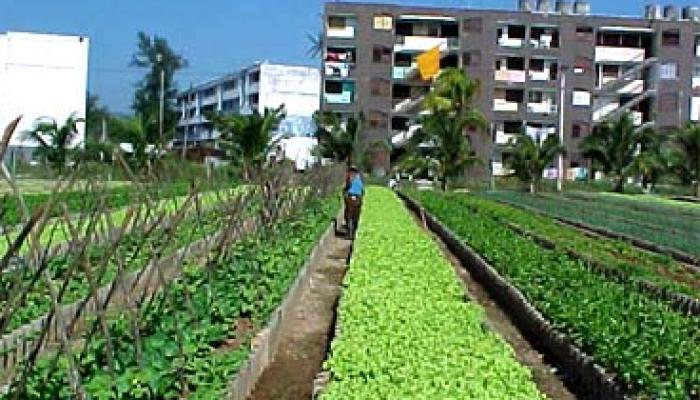Havana, 30 March (RHC) -- In Cuba, national food production is a priority in the current context of the Covid-19. Urban, suburban, and family agriculture and short-cycle crops will be promoted, using the maximum available national resources for this purpose.
Within this scenario, material and financial resources will be allocated as a priority to the production of rice, bananas, beans, corn, eggs, and pork, which are currently in deficit.
To learn about the scope of these decisions, Gustavo Rodríguez Rollero, Minister of Agriculture, and Manuel Santiago Sobrino Martínez, Minister of the Food Industry, participated at the Round Table TV and radio program on Monday.
The Minister of Agriculture said that the Cuban agricultural system currently has 6.4 million hectares, two million of which are dedicated to the planting of crops that produce food for the population.
Among the strengths of the agricultural system, Rodríguez Rollero mentioned some 4,800 agrarian cooperatives, to which some 400,000 tenants are linked.
Concerning investment in the agricultural sphere, in recent years, it has grown by 12% annually, especially in equipment and infrastructure.
In 2019, investments of 500 million pesos closed, while the 2020 plan amounts to 900 million pesos.
"We are going to try, amid the country's economic situation, to conclude the investments," said the Minister of Agriculture.
Speaking at the program, the Minister of the Food Industry, Manuel Santiago Sobrino Martínez, said that his institution has the task of guaranteeing people's food under all circumstances, ensuring strict compliance with food quality and safety standards.
To accomplish its mission, the ministry has more than 700 production establishments and factories, and more than 121,000 workers nationwide, including some 40,000 in the local food industry, subordinated to the structures of the People's Power.
"In the present epidemiological situation of the country, the food industry must ensure strict compliance with the standards," the Minister reiterated, noting that, in addition to those established, the indications issued by the local health authorities and those of Public Health at the national level must be complied with throughout the food processing sector.


